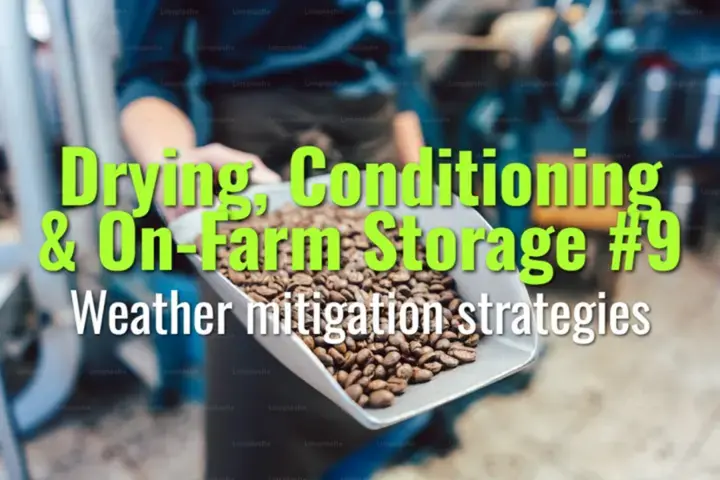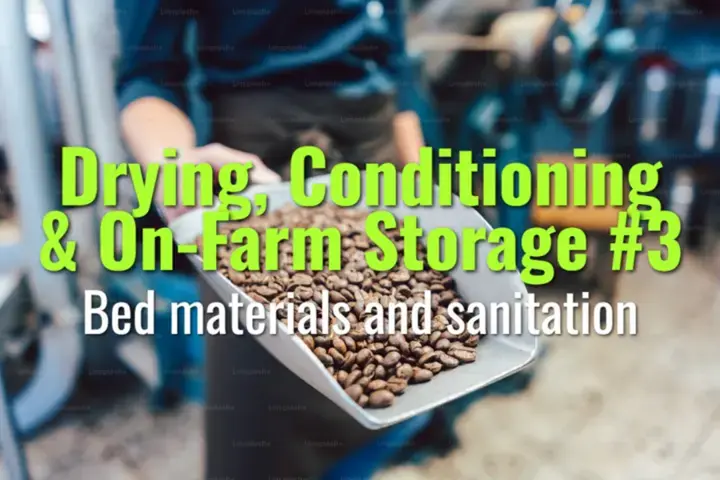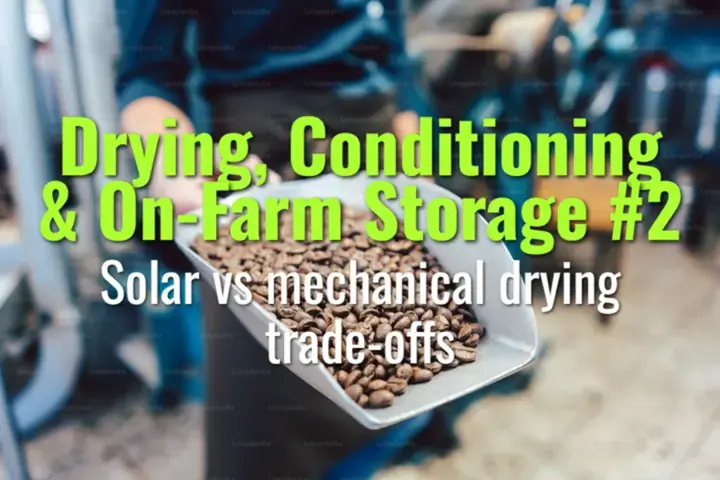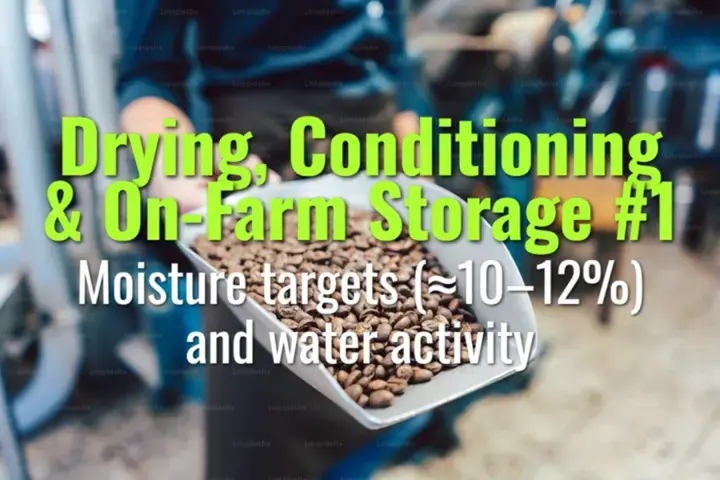
Weather mitigation strategies
This topic explains how farmers manage weather-related risks during coffee drying and storage, with strategies to protect against rain, humidity, wind, and excessive sun exposure.

This topic explains how farmers manage weather-related risks during coffee drying and storage, with strategies to protect against rain, humidity, wind, and excessive sun exposure.

This topic explains the types of bed materials used in coffee drying, their advantages and disadvantages, and why sanitation is essential for preventing defects and ensuring quality.

This topic explains the trade-offs between solar and mechanical drying methods for coffee, highlighting differences in cost, quality, consistency, and environmental impact.

This topic explains the importance of hitting correct moisture content and water activity targets in coffee drying, why they matter for stability and quality, and how farmers measure and manage them.

This topic explains the common defects that occur in honey and pulped natural coffee processing, why they happen, and the practical remediation steps farmers can take to minimize losses.

This topic explains how altitude and humidity influence honey and pulped natural processing, affecting drying times, fermentation dynamics, and final flavor outcomes.